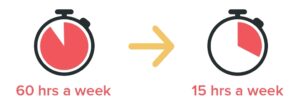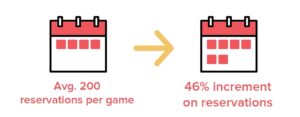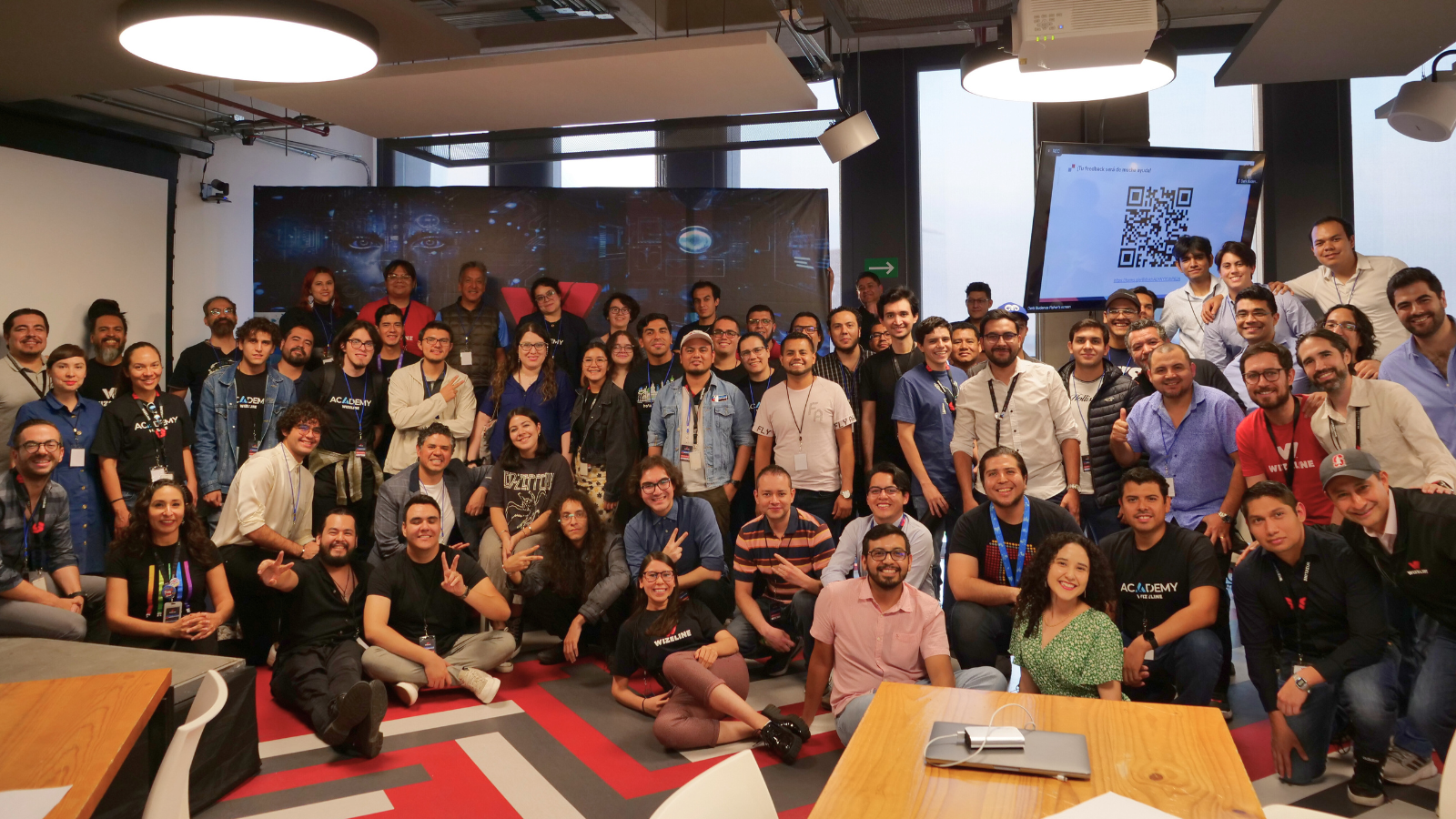
Building a Tailgate Reservations Platform to Enhance the USC Trojan Game Day Experience
Executive Summary
The University of Southern California (USC) worked with Wizeline to design and develop a reservations platform to streamline tailgate bookings for home football games. After the successful deployment of the platform, overall bookings increased by 46% due to an increased capacity for tailgate spaces. The platform also reduced labor time by up to 75% and decreased the time to book group reservations from 20-25 minutes to just a few minutes per game. In addition to increasing revenue and improving efficiency, the reservation platform helped foster a more family-friendly environment for tailgating.
Read on to see how Wizeline collaborated with the USC team to achieve these results.
The Opportunity
On a sunny fall morning, crowds of football fans gather outside the University of Southern California gates before the sun rises. The occasion? The start of a long-awaited football season. The nationally-ranked collegiate sports behemoth is one of only a few universities in the country that allows on-campus tailgating on football game days. Of those few, it is the only one opening its doors to the public at 5 AM.
While tailgating has always been a part of USC’s student life, this first-come-first-serve frenzy has created a tailgating culture that concerns the university. Student groups had to stake out their tailgate space up to 14 hours before the start of each game. USC needed to get ahead of the problem and promote a family-friendly tailgating culture.
Adam Rosen, Associate VP of Cultural Relations & University Events, was tasked with leading the effort for the university. Rosen leads a team of 27 full-time employees and manages over 300 events a year for the university. Together, Rosen and USC leadership proposed a solution: a reservation system that would improve game day operations, prioritize alumni groups, and simplify the process of booking a tailgate space.
The Challenge
In 2015, an in-house web development team built a basic Google form. Rosen’s team used the form in tandem with Excel spreadsheets and Adobe Illustrator to map out and visualize tailgate reservations. While this system solved some problems, it created many more.
This manual reservation system required two full-time people working 60 hours a week during football season on the project, in addition to a contractor working 16 hours a week. The three people were dedicating tedious, long days responding to hundreds of questions over email, manually marking the reservations with stakes in the ground, and working on-site to manage reservations day-of.
In 2017, the workload caused the senior event producer on Rosen’s team valuable planning time on other crucial events like Commencement. “We knew that the automation of the process would be able to free up our time significantly,” said Rosen. “That’s why we were able to get the budget for this product approved. We would need to hire an additional staff member to account for game day work to free up the events staff, or we could create this system.”
Why Wizeline?
Rosen and team knew that they needed something better; something that could integrate bookings and streamline the whole process. “My first inclination was to look at USC to see who could help with this,” said Rosen. “I approached the IT department first to see what resources it had to help me build this, but the department didn’t have the resources and didn’t manage external vendors.”
Like many organizations, Rosen was forced to look externally for a solution. He reached out to a friend in the tech industry and created a rough layout of what the system needed to be. Rosen’s friend advised that many vendors would be expensive because a project of this scope would need long-term support and maintenance, and USC was limited to a university budget. He recommended Wizeline as a trusted partner for leveraging product development resources.
Building a User-Friendly Platform to Advance Game Day Operations
Wizeline got to work with Rosen and the USC team to scope out the project.
“We’re not web or computer technical people in any way, shape, or form,” said Rosen. “Wizeline helped us understand the tradeoffs of different features and functionalities so we were enabled to communicate our vision and be informed contributors.”
Wizeline’s UX team conducted user-centric stories with fictitious personas to better understand user pain points. Focusing on personas and mapping out the user journey helped the team at USC better understand the customized product, and how it is could be designed to best serve tailgating at USC.
Wizeline worked closely with Rosen and team to build a tailgate registration system that increased the capacity of the Trojan Family Game Day Experience at USC. The new platform allows groups to reserve their game day space in advance, serving as an intake form, allowing game-day guests to book space for a single game or multiple games in a season. A key feature is that fans can now book a “season pass”—a huge time saver and win for fans.
Wizeline’s engineers developed two web platforms using React—one for Visitors and another for Admins to review and assign reservation spaces. The Admin platform includes a dynamic map that shows booking availability, allowing flexibility for maps to vary from event to event. Both platforms are hosted in AWS servers and Maria DB.
Driving Results Through Automation and Design
Since implementing the new reservation system, the USC events team has seen dramatic improvements.
More time – The biggest impact has been time savings. USC’s manual reservation system was draining 60+ hours a week from its events team. The new platform by Wizeline has reduced labor time to 15-25 hours a week.
The change impacts more than just the events team; for example, the Marshall School of Business used to book one transaction, spending 6-8 minutes per game. With 5-7 home games per season, booking the full season could take up to 45 minutes. Now it takes the group just a few minutes to book each game.
More bookings – USC used to book an average of 200 reservations per game, with a rate of 60-75% repeat tailgaters. The new platform increased the number of bookings by 46%—from 240 reservations on the biggest tailgate day in 2017, to 350 reservations for the homecoming game in 2018. Tracking those 240 bookings was a reflection of not being able to plan spaces effectively in the past. The new product allows for the admins to calculate space base on fire marshal code and account for extra spaces if needed. Tailgate spaces are now designed based on data and maps at scale, allowing USC to accommodate more people.
More money – As a result of more bookings, the university now generates more revenue. By packing in more people per game, the Game Day Experience makes more money. The additional revenue helps offset the budget that the events team requests from the Provost’s office.
A better fan experience – Perhaps the most important breakthrough was that USC solved a huge user problem and enhanced the guest experience. The events team used to get hundreds of questions a week through calls and emails. People would ask questions regarding making a reservation, changing their reservation, or canceling. Now, the team gets 20 questions a week and there’s a significant reduction in simple, monotonous questions. “The transformation of the system was from fans not understanding what was going on,” said Rosen.
Improved tracking and attribution – USC is now able to track internal metrics from the Game Day Experience. The reservation platform has made financial reporting easier, allowing the team to track the number of people they accommodate per game. It has also allowed the team to accommodate different levels of pricing for reservations, with more robust reporting of each tailgate.
Wizeline will continue to work with USC to add features to the Game Day reservation platform, and the teams have discussed expanding the platform to serve other university events and activities.











